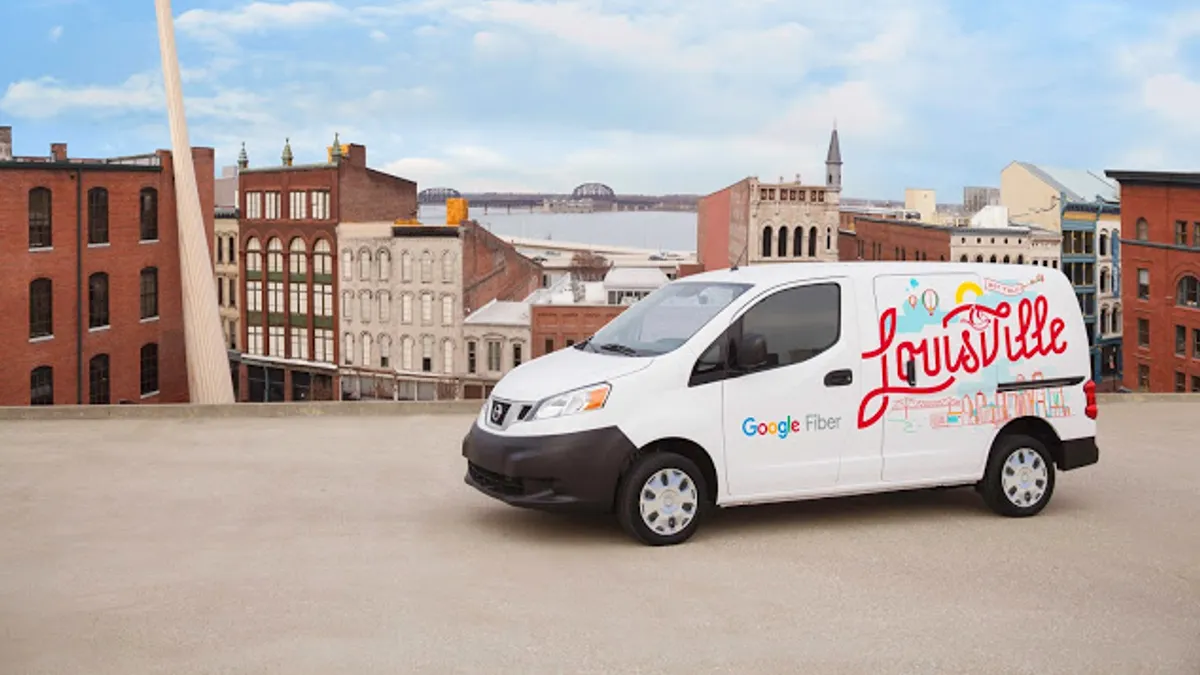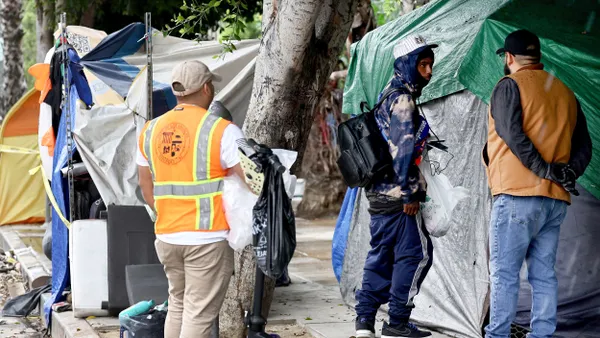Dive Brief:
- Google Fiber has announced in a blog post the “tough decision” to leave Louisville, KY following challenges in laying sufficient fiber to deliver high-speed broadband. Service will be deactivated on April 15, although subscribers will get the final two months of internet for free.
- The service launched in Louisville in October 2017, at which time Google tested a new construction method that used shallow trenches to lay cable to speed up construction. However, residents said cables were popping out of the road and were left exposed, and Google eventually said the problems were so substantial it would have to rebuild its entire network.
- The exit from Louisville is not expected to affect service in its 11 other partner cities. "The lessons we’ve learned in Louisville have already made us better in our other Google Fiber cities," the company said.
Dive Insight:
Google Fiber burst onto the scene in 2012, promising 1 gigabit per second (Gbps) internet at lower costs than traditional cable and internet providers — but those ambitions have been curtailed in recent years. In 2016, plans to expand were put on pause and some cities slated to get new fiber service were instead given wireless service. Louisville now marks the service’s most high-profile failure.
As CNET describes, Google Fiber had sought to install fiber in Louisville in just five months by having crews dig trenches just two inches deep to install fiber cables, then fill them in with a solidifying, rubbery liquid. The method was meant to avoid the costly up-front costs of laying fiber (and pass rivals also trying to expand in Louisville), but the installation clearly had some problems. Google has used a similar technique — but with six-inch trenches — in San Antonio.
The loss of Google Fiber could pose a problem for Louisville, which already has a pronounced digital divide that has left some disadvantaged neighborhoods without easy access to high-speed internet. The city has sought to solve it with some non-infrastructure solutions, like educating citizens on low-cost subscriptions and encouraging business development in less privileged areas, but the Google Fiber investment was also seen as a way to increase broadband access.
The failure also comes as more localities are exploring municipal broadband projects, which have proven successful in cities like Longmont, CO. Still, others are holding out for the launch of 5G, which promises wireless speeds even faster than Google Fiber could offer and will support massive data collection and the opportunity for connected infrastructure. Telecoms have started to dole out their 5G networks to select cities, but with full service still years away, cities will still need robust and cost-effective fiber options to keep their residents connected.











